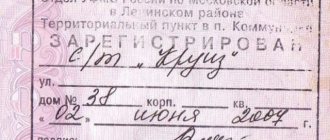After Federal Law No. 99 of May 5, 2014 came into force and corresponding changes were made to the Civil Code of the Russian Federation, the difference between TSN and SNT is of paramount importance for all owners. The inclusion of amendments to the law changed the situation, since now summer residents will not choose between two private enterprises and will be able to create only partnerships that include real estate owners (TSN). Since September 1, 2014, horticultural partnerships have been completely abolished; legal entities that will be created after this date are assigned the status of TSN. This article describes in detail the differences between the two OPFs and the procedure for organizing a new type of society.
The main differences between TSN and SNT
A gardening partnership can be created by the owners of summer cottages after a collective decision is made at a meeting. SNT participants can jointly solve various social and economic issues, including waste removal, development of the infrastructure of a legal entity or other current tasks. SNT is an official organization that will need to be registered in order to assign it legal status.
TSN is a broader concept compared to other legal forms, since it unites many public enterprises other than cooperatives. All partnerships are created for the purpose of managing public property, as well as to perform social and economic tasks. Integral parts of each of them are governing bodies, a single charter and the need to pay membership fees, so the difference between the two types is not significant.
Important! The participants of the partnership must develop a charter and elect members of the board of directors by voting. When registering, you should adhere to the rules established by law that govern activities in a gardening non-profit partnership.
Land plots for individual housing construction - advantages and disadvantages of the individual housing construction plot
These plots of land are the most prestigious and are in great demand; they are intended for the construction of residential buildings, houses, and cottages. Accordingly, the acquisition of land for individual housing construction will cost more, since these plots are located within residential settlements.
Advantages of an individual housing construction plot:
- You can easily register in a house built on this site and you will have an address.
- Accordingly, having a residence permit, you will be able to get a job, receive mail and subscribe to periodicals.
- Social norms apply to individual housing construction lands in the country - providing residents with social infrastructure (hospitals, clinics, kindergartens, schools, shops, etc.), roads, and all possible communications (electricity, gas, water, etc.).
- Having permanent registration, you will be able to store your weapons in your home, if you have one.
- The house, which is built on an individual housing construction plot, is intended for people to live in. It will be much easier for you to apply for a tax deduction for built housing.
- A land plot for individual housing construction can be accepted as collateral by various banks if you want to get a targeted mortgage loan.
Disadvantages of individual housing construction land plot, restrictions:
- There are restrictions on the size of the plot (each region of Russia has its own minimum and maximum standards).
- Since it is planned to build a residential building on individual housing construction, and not a garden house, you will need to coordinate your construction project with the relevant organizations and services and obtain all permits. During construction, you will need to comply with all existing GOSTs and SNiP rules. Upon completion of construction, the residential building will need to be properly put into operation, again coordinating all issues with existing authorities.
- Although, by law, individual housing construction sites are required to provide all communications free of charge and build roads, this does not at all guarantee that your home will have an excellent road, and that electricity, water and gas will be supplied without interruption.
Additional changes in legislation
In addition to the question of how one form of OPF differs from another and what is the difference between them, it is important to know who can dispose of the property of partnerships. According to Article 123.13 of the Civil Code of the Russian Federation, all public facilities must belong to TSN participants, since they represent shared ownership. In SNT, this property previously belonged to all participants of the partnership or to individual participants if it was purchased with funds received after targeted contributions were made.
The adoption of Federal Law No. 99 also influenced the method of alienation of a plot of land along with a share in general property. If a partnership participant sells the plot, after that he will not be able to dispose of part of the TSN property. This right will automatically pass to the person who buys the land and becomes its subsequent owner. Before the adoption of the law, a SNT participant could simultaneously conduct two transactions and transfer the rights to the plot to the buyer along with the transfer of rights to common property.
Payment for "individualism"
I left SNT and am gardening on an individual basis. I make contributions to the current expenses of SNT, targeted contributions. Am I also required to pay contributions that go towards the salaries of the chairman and accountant of the partnership, the amounts of which are established by the members of the SNT?
S. N. Mishunov, Moscow region
Lawyer Gennady Kropotov answers :
You write that you pay contributions to the current expenses of SNT. And in accordance with Article 1 of the Federal Law of April 15, 1998 No. 66-FZ “On gardening, vegetable gardening and dacha non-profit associations of citizens”, the current expenses of SNT include funds contributed to pay the wages of employees who have entered into employment contracts with SNT, and others similar expenses.
In addition, your plot continues to remain on the territory of the partnership. The maintenance of infrastructure facilities and other public property requires expenses, which include the remuneration of the chairman and accountant of the SNT.
Important: if you made contributions to the acquisition (creation) of the common property of SNT, then the fee for using it for you cannot be more than that established for members of the partnership.
Pros and cons of two types of OPF
Homeowners' associations or TSN can unite not only owners of apartments in apartment buildings, but also owners of country or garden-type plots, garages, and areas intended for vegetable gardens. The property can be anything, but the form of organization remains unchanged. Members of the TSN management may not consult with members of general meetings and independently resolve important issues.
TSN also has significant disadvantages, for example, such an organization cannot be transferred to a simplified tax payment system, unlike HOAs. The main advantage of TSN is that its participants are not liable for the obligations of the partnership with their property and, if desired, can change its form by creating a consumer-type cooperative. SNT and TSN differ in the rules for conducting business, in addition, each of these OPFs has its own nuances.
It should be taken into account that changes in the law did not significantly affect partnerships created before September 1, 2014. At the same time, changes to the list of existing documents and the charter must be carried out taking into account accepted standards. The name of new legal entities is no longer indicated in the form of an abbreviation; it must have a different form: “association of real estate owners.”
The conclusions are comforting
Is the federal law on gardening associations of citizens now repealed?
Federal Law No. 66-FZ of April 15, 1998 on gardening associations of citizens, as well as the norms of the Housing Code of the Russian Federation on HOAs, have not been repealed, but continue to apply. Although, of course, they will be adjusted in due time.
This means that the charters of HOAs, SNTs and other non-profit associations will not have to be rewritten from start to finish.
From the editor
If you, dear readers, have any questions about the new law (or are concerned about other legal issues), please contact us. We will definitely answer!
How to re-register SNT in TSN
Within the framework of legislative norms, SNT board members often need to change the OPF, taking into account the amendments made. Re-registration of SNT into TSN occurs by dividing SNT or by changing the type of enterprise. The reorganization method actually represents the liquidation of an existing legal entity and the formation of a completely new legal entity. It is carried out according to step-by-step instructions and consists of several stages:
- Confirmation of the decision to replace the OPF form. This issue is resolved by the leaders of SNT at the main meeting.
- Appointment of a group of people responsible for transformation.
- Change of rules of the charter in an updated version. In most cases, this procedure only requires a change of name and title when no other updates are involved in connection with the new needs of the association.
- Adoption of the charter at the general meeting of SNT members.
- Collection of a new package of documents for re-registration. New documents will need to be submitted to the tax service and other control authorities. Although the SNT form is not commercial, the directors of the company will have to prepare tax reports.
- Making another seal for TSN if necessary.
If the constituent documents are not replaced in accordance with Chapter 4 of the Civil Code of the Russian Federation, the association of owners may be excluded from the Unified State Register of Legal Entities, since this is a violation of the current law. Such SNTs will not be able to conduct transactions, collect contributions, enter into official contracts, or use public utility services. Additionally, if violations are detected, legal entities and managers are fined.
Charter of SNT sample 2021 according to Federal Law 217
Certain changes will also affect the payment of membership fees. Now the partnership can collect them from members only once a month (or less often at its discretion). Moreover, they must be accepted exclusively by bank transfer to the specified bank account. After payment, each owner is issued a receipt containing all SNT details.
In the near future, the chairmen of the partnership should develop a new draft Charter in accordance with these changes. This responsibility belongs to the Management Board of the partnership, and the approval procedure is within the competence of the general meeting. Therefore, in general, the sequence of actions is as follows:
The main nuances of changing OPF
If you have a goal to create a partnership of real estate owners instead of SNT, you will need to familiarize yourself with the rules and consistently go through all the stages. In most cases, there is no need to make global changes, especially if the charter remains in the same version and new persons are not included in the membership. Existing title documents do not need to be reissued, which significantly simplifies bureaucratic procedures.
Problems arise only in a situation where SNT has difficulties with the delimitation of plots, registration of the right to own communications, including other conflict issues. According to the law, any part of the SNT can be separated from the general composition. For this purpose, you will need to obtain the consent of each participant or make a decision at the meeting. In the absence of a positive decision, members of the allocated part of the partnership have the right to go to court.
Registration procedure
The charter must indicate the following:
- Full name.
- Location.
- Legal status.
- Composition of the governing body (owners included in the meeting).
- Subject (property that is under control) and goals of TSN activities.
- Division of competencies between the bodies of the association.
- The procedure for making decisions (which should be made only unanimously, and which by majority vote).
Members of TSN (and at the same time its founders) can be:
- Phys. persons who are owners of real estate designated as a public property.
- A legal entity that has the right to own, manage and manage the property of the partnership.
When joining an organization and filling out an application, the person who wishes to enter it provides information about himself. Later, this information will be entered into the register so that it can be established exactly what kind of real estate (share) belongs to this member. If there are any changes to the real estate or personal data have changed, the TSN participant will have to notify the board of the organization about this.
There are no strict and clearly defined requirements for the charter of a partnership in the legislation. The main thing is that its provisions do not violate the norms of the Housing and Civil Codes.
Reorganization by transformation
Knowing the pros and cons of each OPF and taking into account the main differences between them, you can reorganize the current form by replacing SNT with TSN. It is standard in nature and includes several simple steps:
- Adoption of a decision at the general meeting to replace the current form of general public fund with a new one.
- Preparation and creation of an updated charter.
- Development of a package of documentation for office work.
- Collection and preparation of documents for public property of SNT, including IEP.
- Standardization and clarification of the list of participants.
If at the main meeting the majority of participants vote for changing the OPF, the head of the board will need to prepare and submit to the tax authorities:
- A statement certified by a notary in the established form.
- Minutes of the meeting of participants regarding a change in the type of organization.
- Charter of the new partnership in two copies.
- Receipt of payment of the fee for the procedure for changing the form.
- A document to confirm the new address of the partnership.
Functions, tasks and goals of the organization
The functions in TSN are distributed as follows:
- Control and management are carried out at the meeting of owners.
- The execution of decisions is carried out collectively (forming the board) or individually (by the decision of the chairman).
- The audit commission exercises control over the management apparatus.
The main task of such an association is to organize the collective use of real estate. Thanks to the partnership of real estate owners, owners can carry out management independently, without involving third parties (for example, management companies).
Features of the new law on gardening and vegetable farming partnerships - 2021
State authorities of the constituent entities of the Russian Federation and local governments have the right to support the development of horticulture and truck farming in other forms established at the local level in accordance with the legislation of the Russian Federation.
The new law (Article 26) introduced the responsibilities of municipalities to develop their municipal and investment programs to support gardening and vegetable farming, providing, in addition to educational work to popularize gardening and vegetable gardening or the introduction of special units involved in the implementation of regional and municipal policies to support gardening and vegetable farming, the decision such very important tasks as:
Charter of SNT and DNT 2021 for gardeners or chairmen
Then there will be a choice - either the gardener helps or does not interfere. The certainty and accuracy of the provisions will eliminate a number of meaningless letters from “local writers” to the prosecutor’s office, and, at the same time, it will be possible for the responsible persons of the SNT to present evidence of the correctness of their actions to the same government bodies.
We recommend reading: Paying tax by document index online
This edition is useful for SNT with a small number of gardeners, where little depends on collective opinion, life goes on by itself, and there is no work of the chairman and his team or no one cares.










